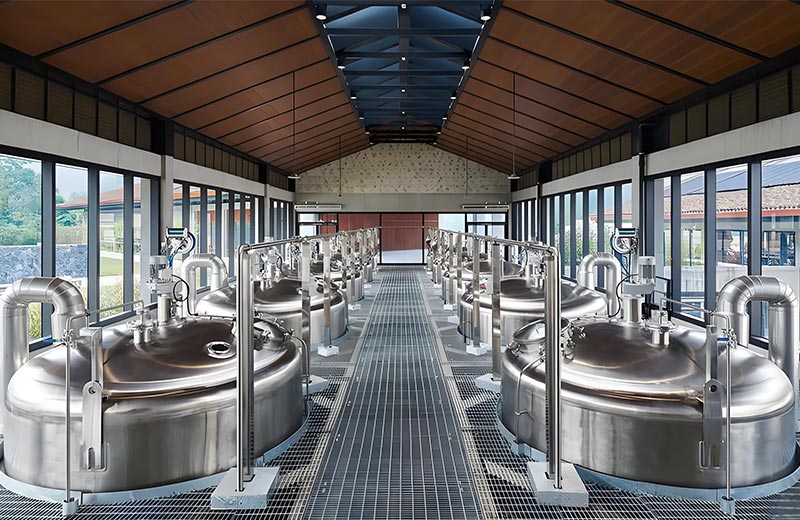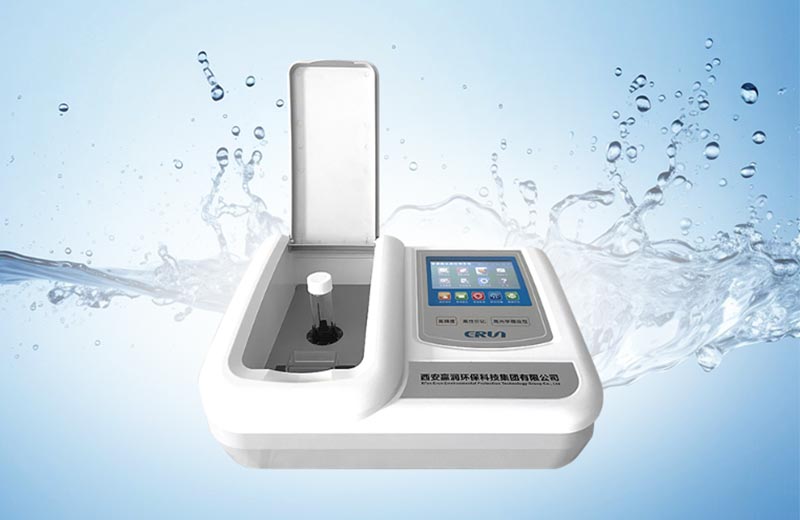The winery pays particular attention to water quality testing and is equipped with a range of highly sophisticated testing equipment to ensure that the water meets strict brewing standards.From precision PH meters to multi-parameter water analyzers, from turbidimeters to spectrophotometers, these advanced instruments are the winemaker's right-hand man,Not only can it accurately measure the pH, harmful substances, nutrients and turbidity in water, but it can also analyze in depth the ionic parameters and chemical element content of the water, providing wineries with a comprehensive and accurate report on water quality.
Water quality testing in wineries is an important part of ensuring wine quality and production safety, and mainly involves the following indicators and standards:

pH: should be between 6.8 and 7.2 to ensure wine stability and yeast growth.
Total hardness: 2.50~4.28mmol/L, ensuring moderate calcium and magnesium ion content.
Nitrate nitrogen: 0.2~0.5mg/L to ensure sufficient nitrogen source.
Hygiene and safety: free of bacteria and E. coli, free residual chlorine <0.1mg/L.
Chemical Oxygen Demand (COD): <50mg/L, a measure of organic pollutant content.
Biochemical Oxygen Demand (BOD5): <10mg/L, reflecting the content of biodegradable organic matter.
Suspended solids (SS): <10mg/L, insoluble particulate content indicator.
Ammonia nitrogen (NH3-N): <1mg/L, nitrogen pollutant indicator.
Total phosphorus (TP): <0.5mg/L to control phosphorus content.
pH: between 6 and 9 to prevent acid and alkaline stress.
Total bacterial count and E. coli group: meet the required hygiene standards.
Heavy metal content: in accordance with the Comprehensive Sewage Discharge Standards.
These standards ensure that the quality of both water used and discharged from the distillery meets the requirements for production safety and environmental protection.
Water quality testing in wineries requires a wide variety of equipment to ensure that the water quality indicators are up to standard, thus ensuring the stability and controllability of the winemaking process, as well as the quality and taste of the final product.The following are some of the key pieces of equipment:
Water quality detector: used to detect harmful substances in water, such as heavy metals, ammonia nitrogen, total phosphorus and so on.
PH Meter: Measures the acidity and alkalinity of the water to ensure that the water meets the brewing requirements.
Spectrophotometer: Measures organic matter and nutrients in water, such as ammonia, nitrite, nitrate, etc.
Turbidimeter: Measures the turbidity of water to determine the presence of suspended and organic matter in the water.
Multi-parameter water quality analyzer: It can determine various ionic parameters and chemical element contents in water, such as calcium, magnesium, heavy metals, etc., providing comprehensive water quality analysis.

There are also testers dedicated to the turbidity of beer, as well as instruments for measuring indicators such as dissolved oxygen, conductivity, residual chlorine, and so on.Together, these devices form a complete system for water quality testing in breweries.